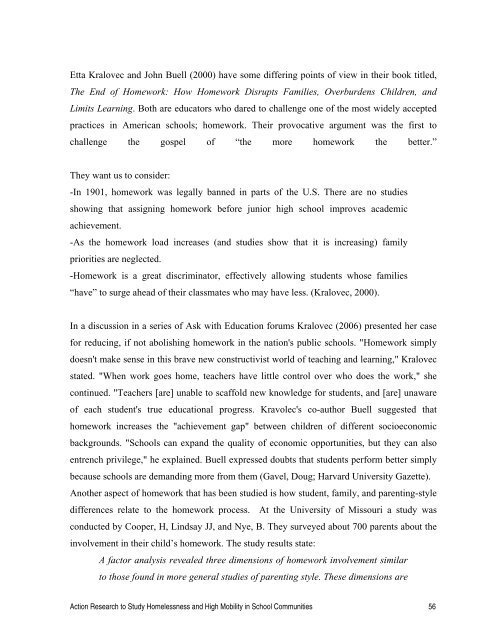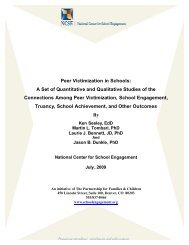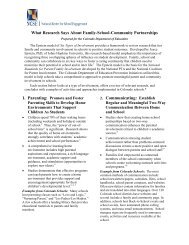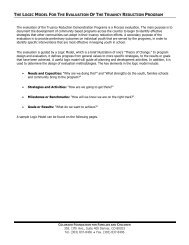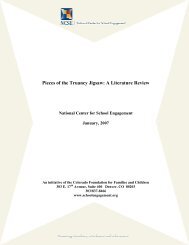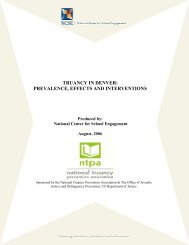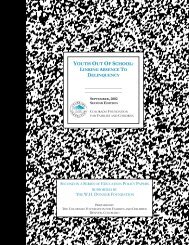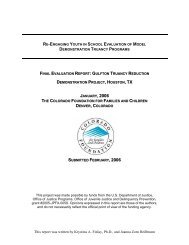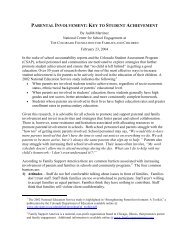Section 1: Academic Achievement - National Center for School ...
Section 1: Academic Achievement - National Center for School ...
Section 1: Academic Achievement - National Center for School ...
Create successful ePaper yourself
Turn your PDF publications into a flip-book with our unique Google optimized e-Paper software.
Etta Kralovec and John Buell (2000) have some differing points of view in their book titled,<br />
The End of Homework: How Homework Disrupts Families, Overburdens Children, and<br />
Limits Learning. Both are educators who dared to challenge one of the most widely accepted<br />
practices in American schools; homework. Their provocative argument was the first to<br />
challenge the gospel of “the more homework the better.”<br />
They want us to consider:<br />
-In 1901, homework was legally banned in parts of the U.S. There are no studies<br />
showing that assigning homework be<strong>for</strong>e junior high school improves academic<br />
achievement.<br />
-As the homework load increases (and studies show that it is increasing) family<br />
priorities are neglected.<br />
-Homework is a great discriminator, effectively allowing students whose families<br />
“have” to surge ahead of their classmates who may have less. (Kralovec, 2000).<br />
In a discussion in a series of Ask with Education <strong>for</strong>ums Kralovec (2006) presented her case<br />
<strong>for</strong> reducing, if not abolishing homework in the nation's public schools. "Homework simply<br />
doesn't make sense in this brave new constructivist world of teaching and learning," Kralovec<br />
stated. "When work goes home, teachers have little control over who does the work," she<br />
continued. "Teachers [are] unable to scaffold new knowledge <strong>for</strong> students, and [are] unaware<br />
of each student's true educational progress. Kravolec's co-author Buell suggested that<br />
homework increases the "achievement gap" between children of different socioeconomic<br />
backgrounds. "<strong>School</strong>s can expand the quality of economic opportunities, but they can also<br />
entrench privilege," he explained. Buell expressed doubts that students per<strong>for</strong>m better simply<br />
because schools are demanding more from them (Gavel, Doug; Harvard University Gazette).<br />
Another aspect of homework that has been studied is how student, family, and parenting-style<br />
differences relate to the homework process. At the University of Missouri a study was<br />
conducted by Cooper, H, Lindsay JJ, and Nye, B. They surveyed about 700 parents about the<br />
involvement in their child’s homework. The study results state:<br />
A factor analysis revealed three dimensions of homework involvement similar<br />
to those found in more general studies of parenting style. These dimensions are<br />
Action Research to Study Homelessness and High Mobility in <strong>School</strong> Communities 56


